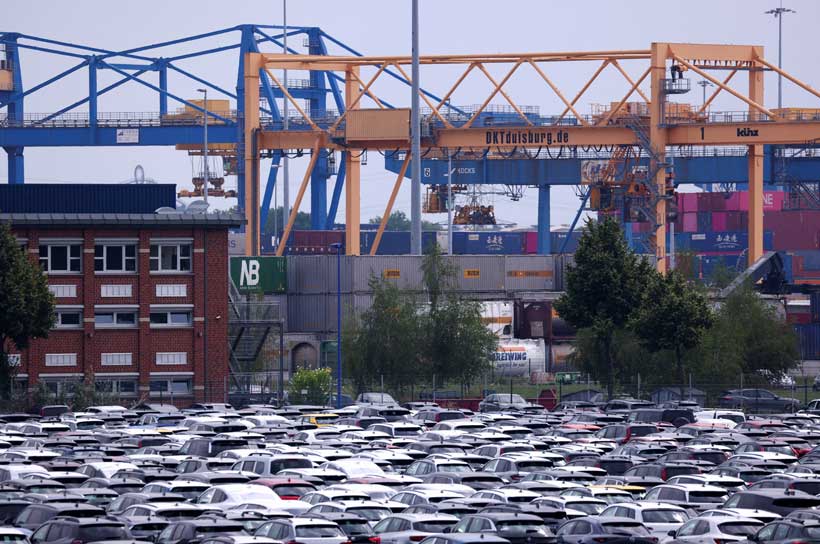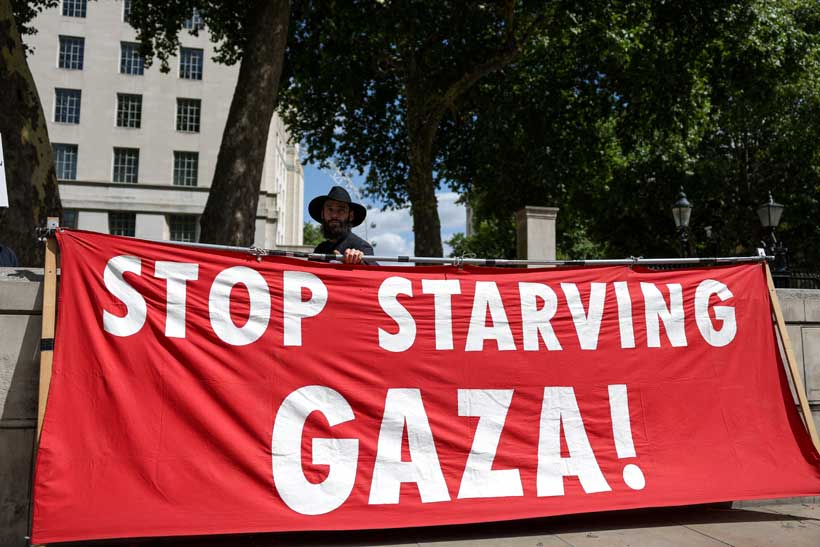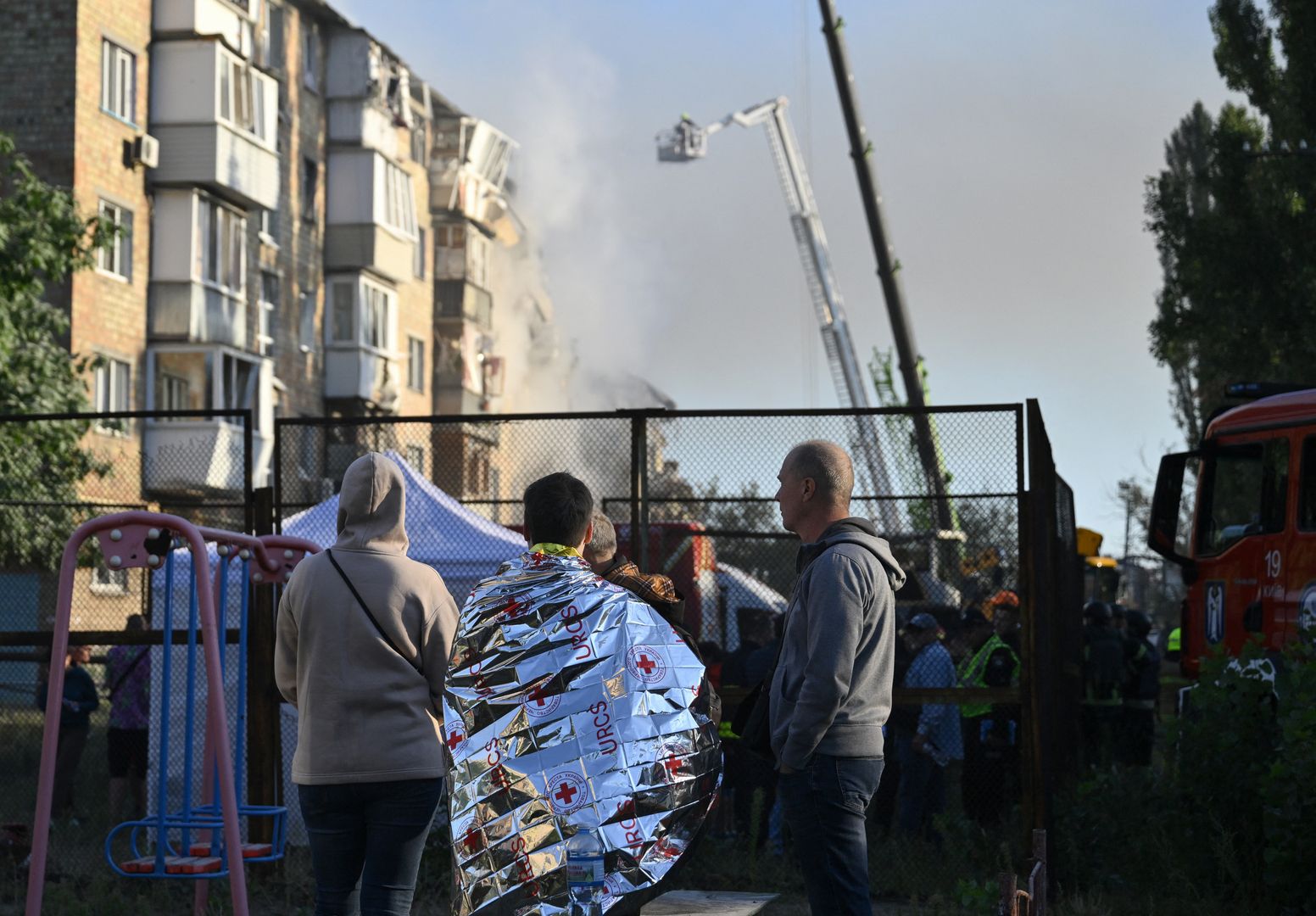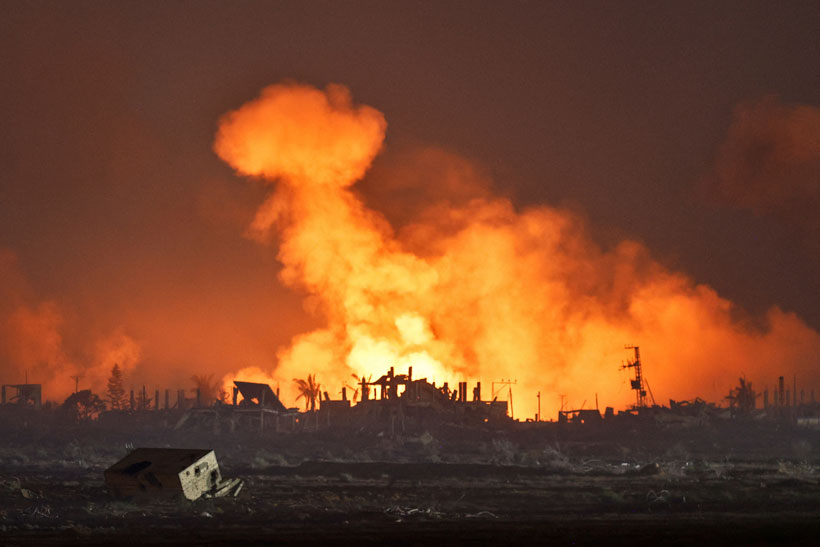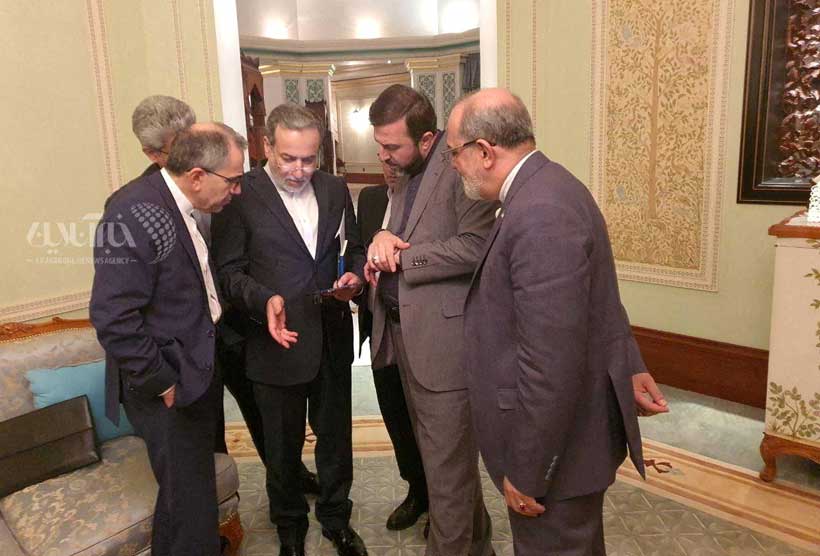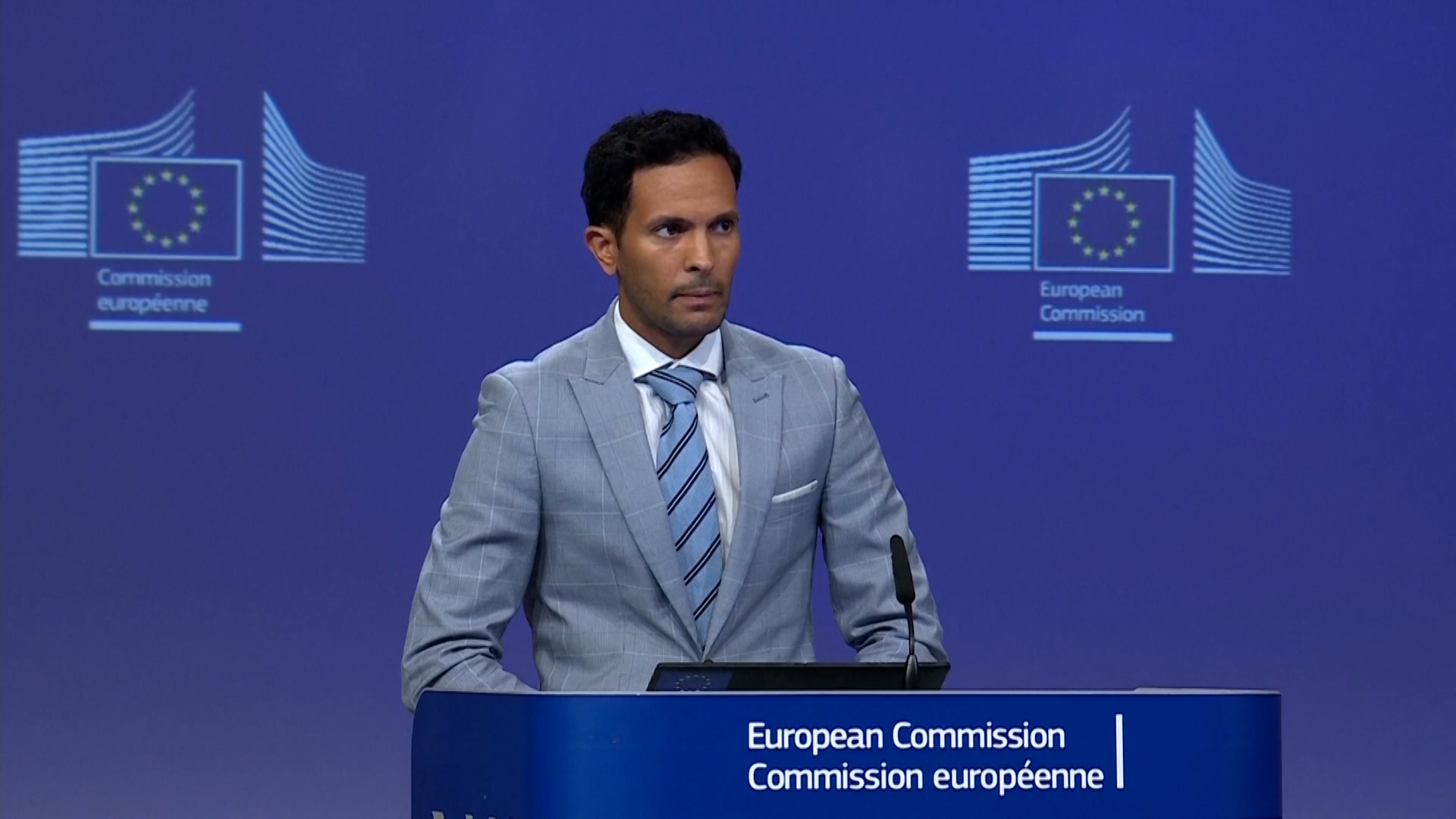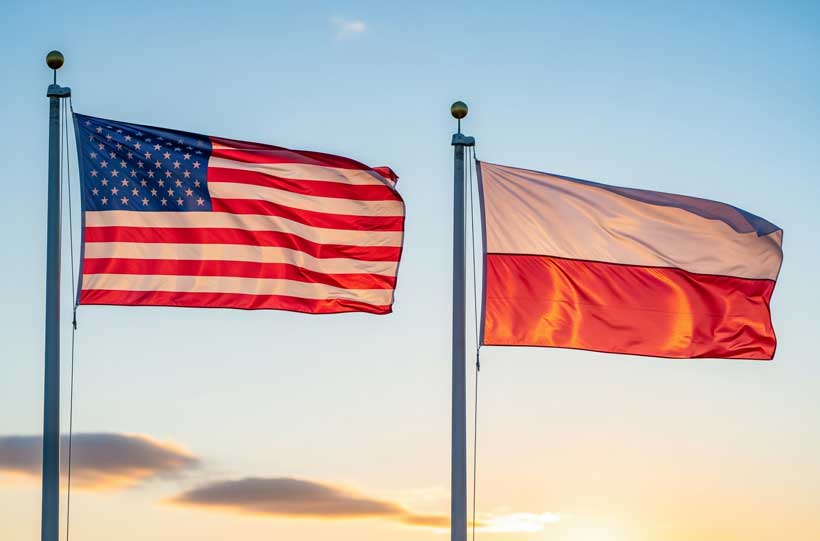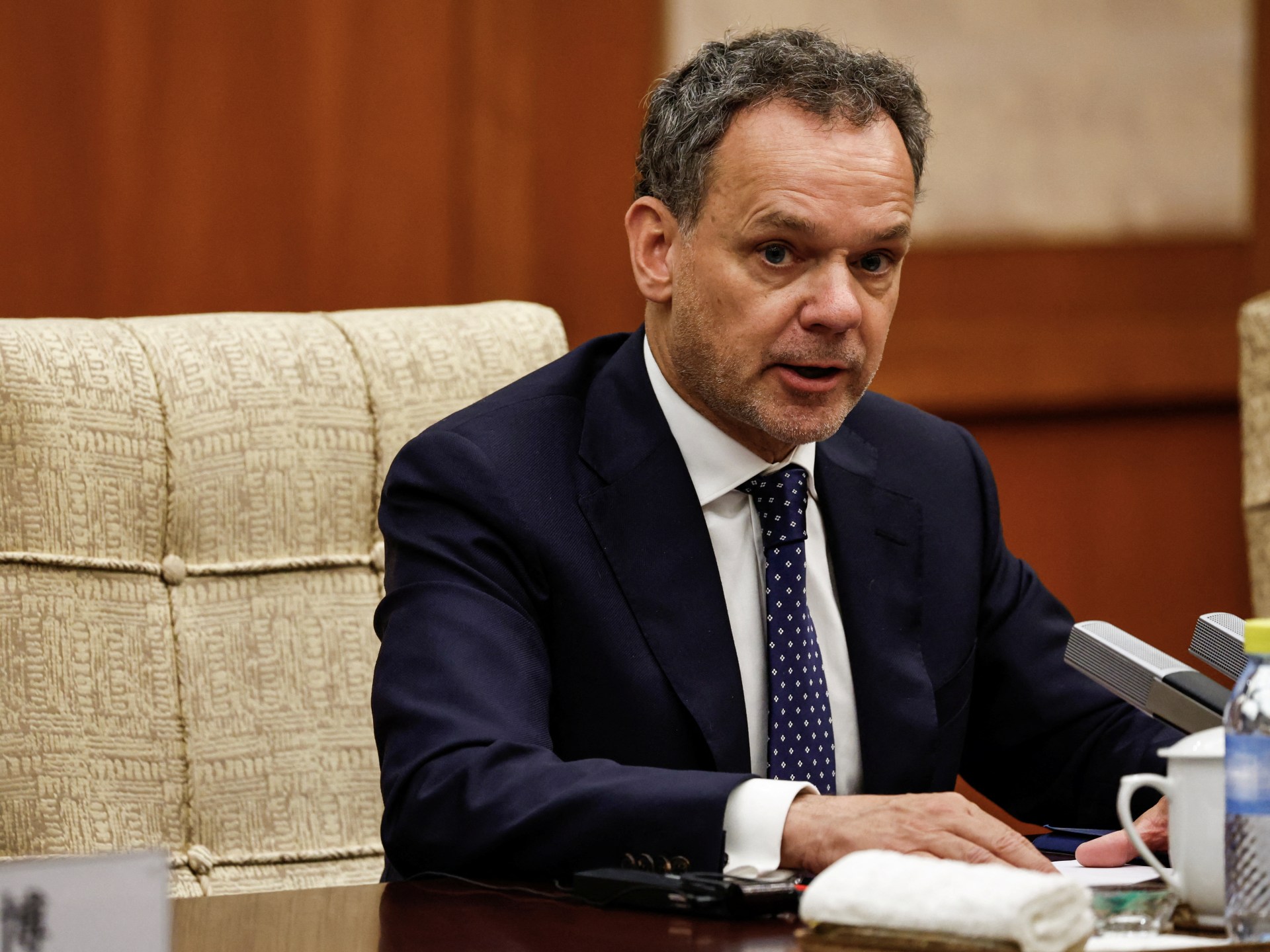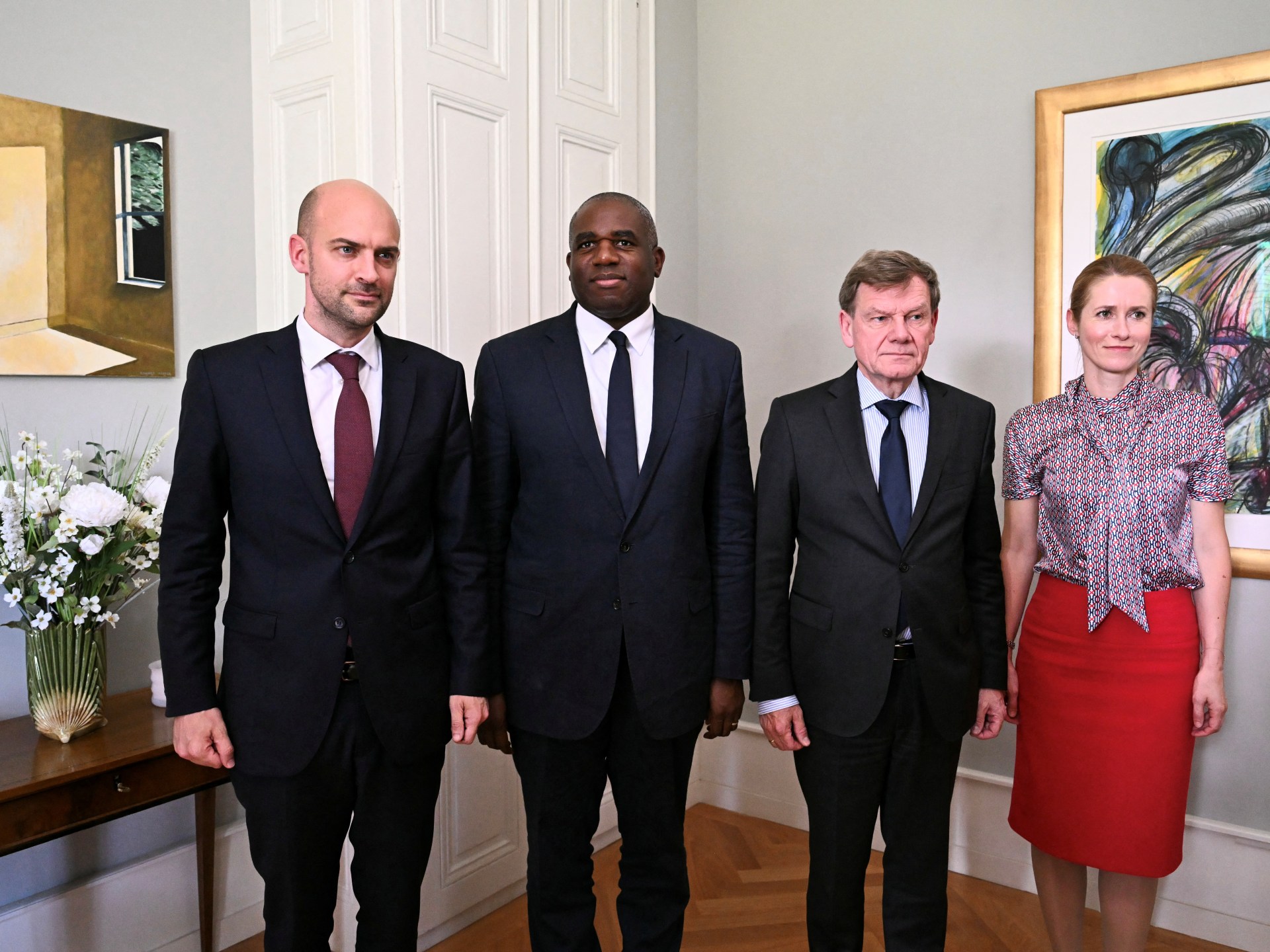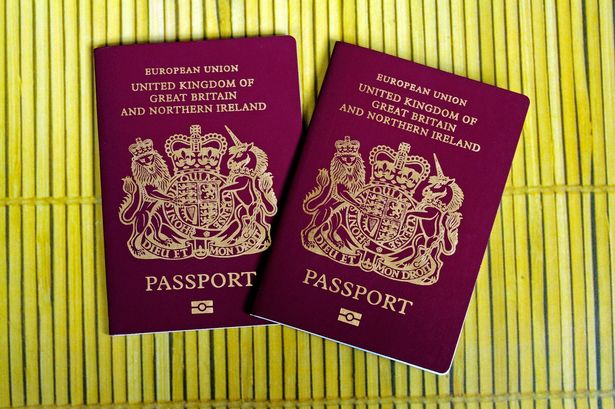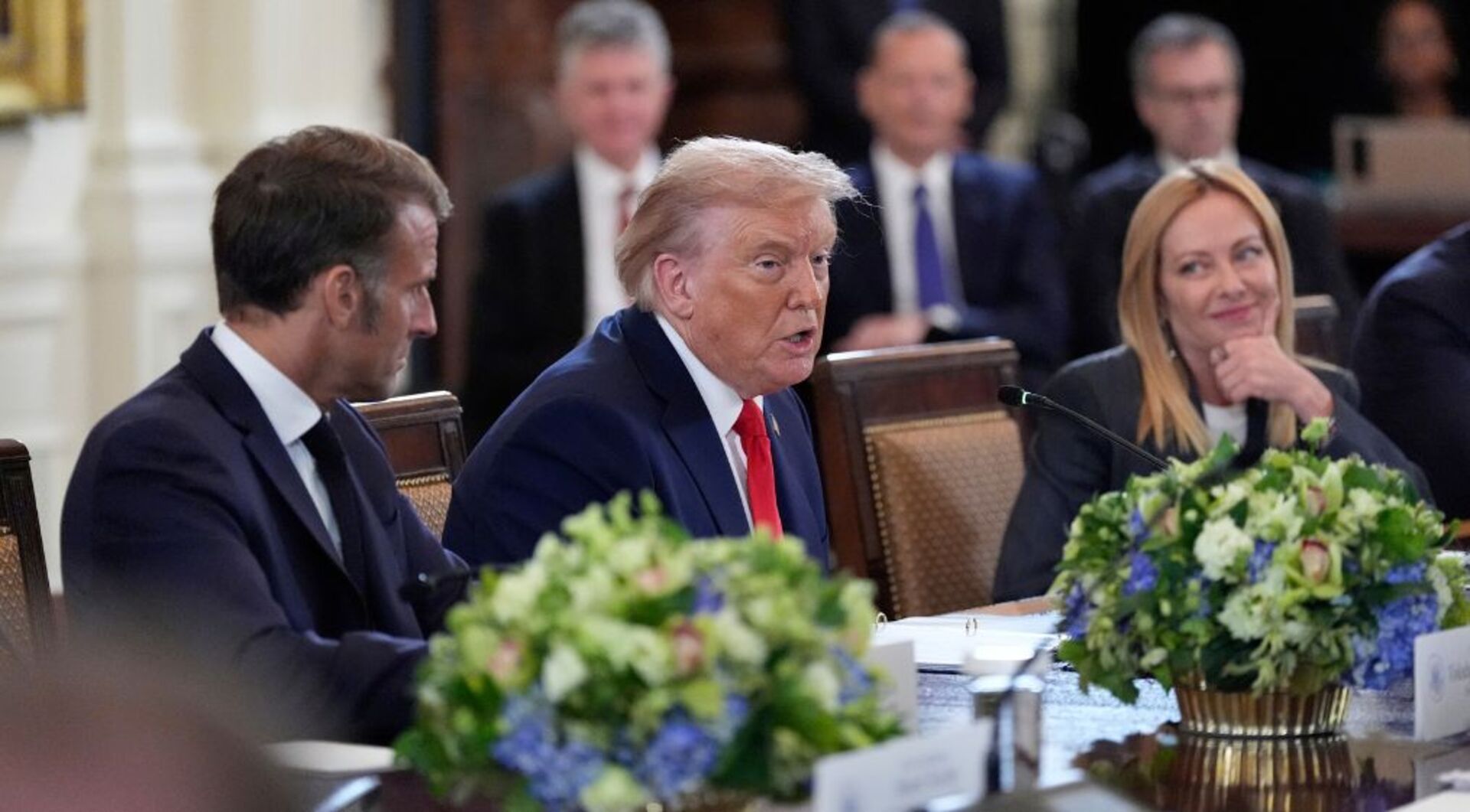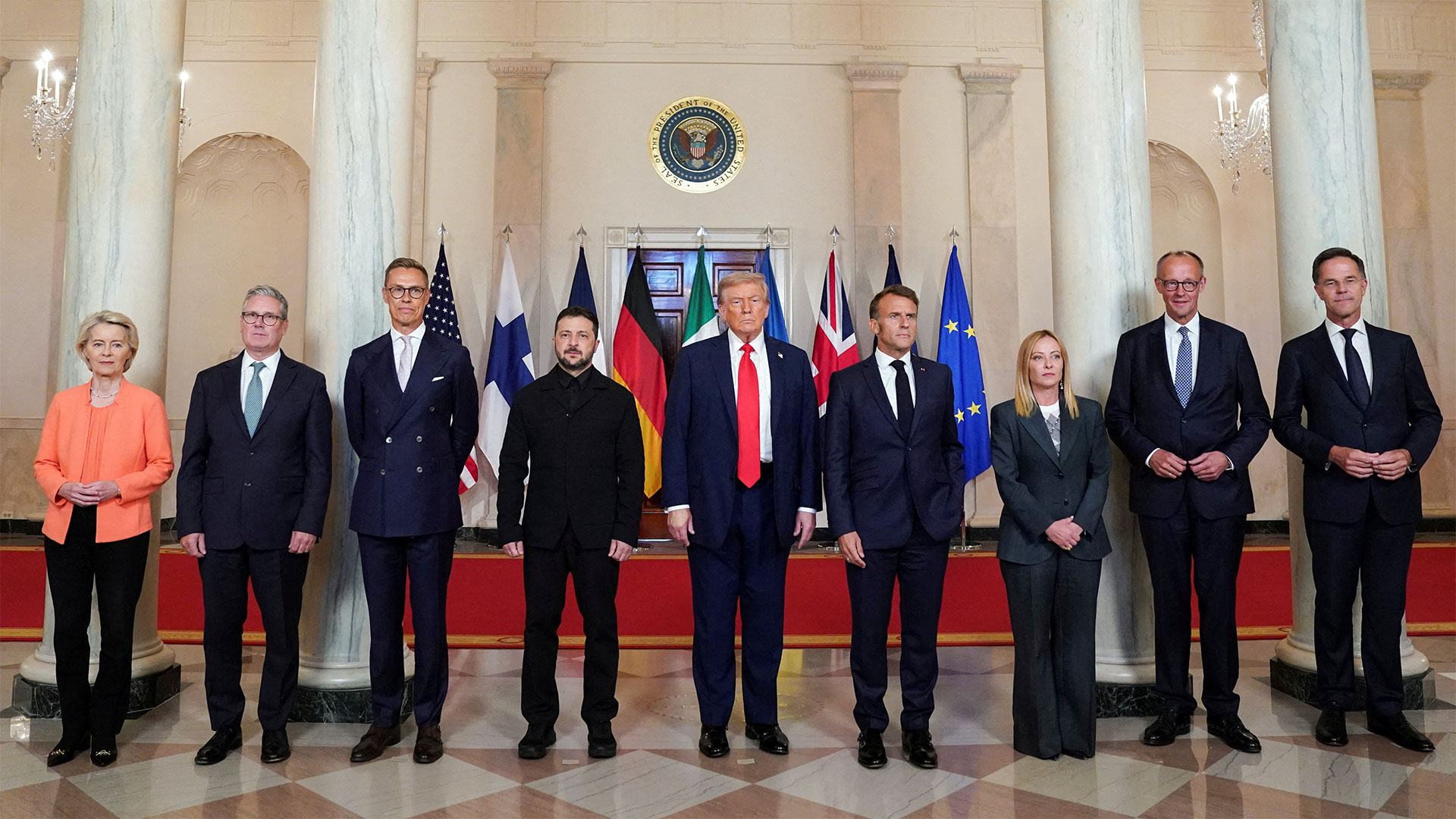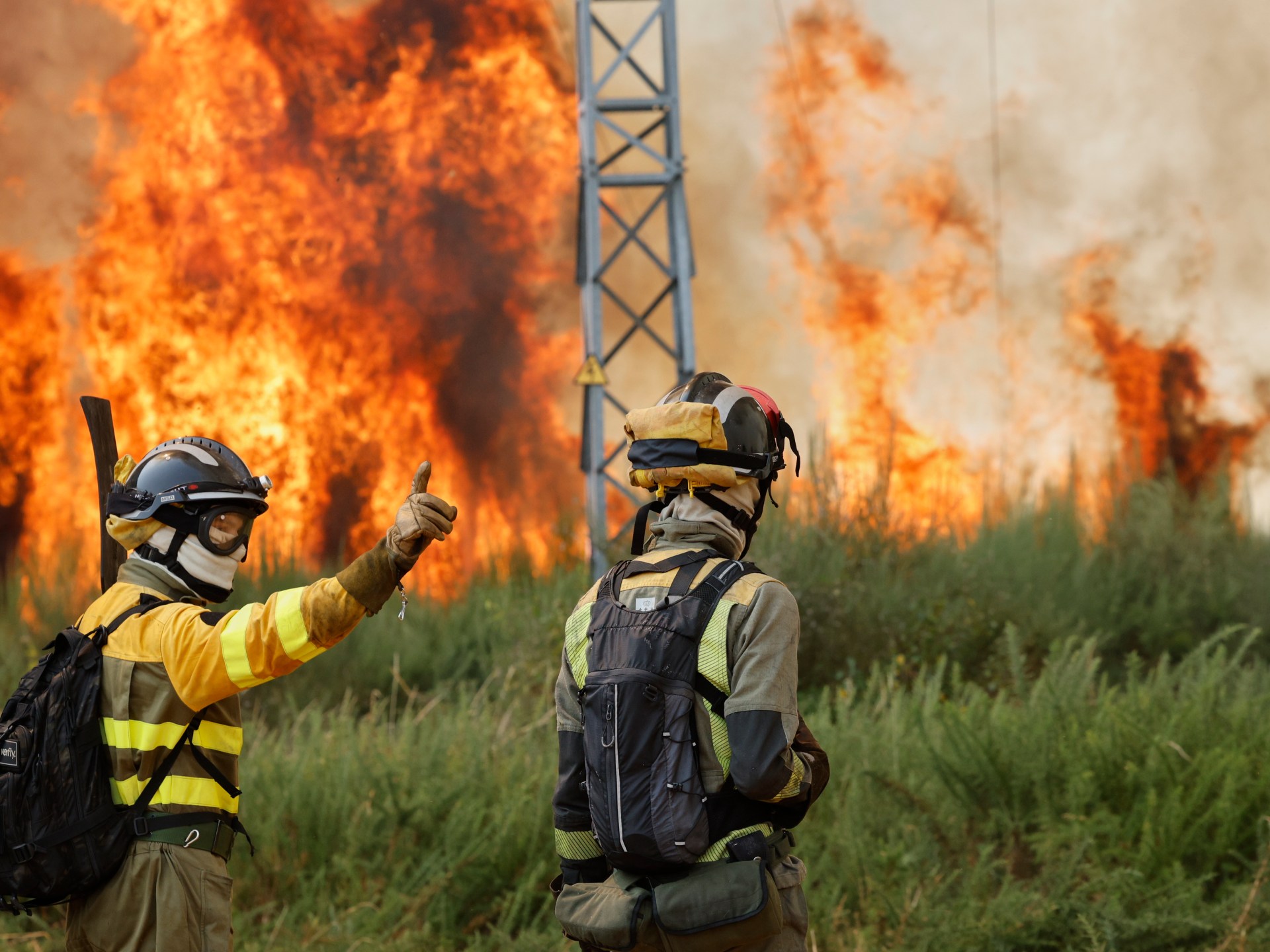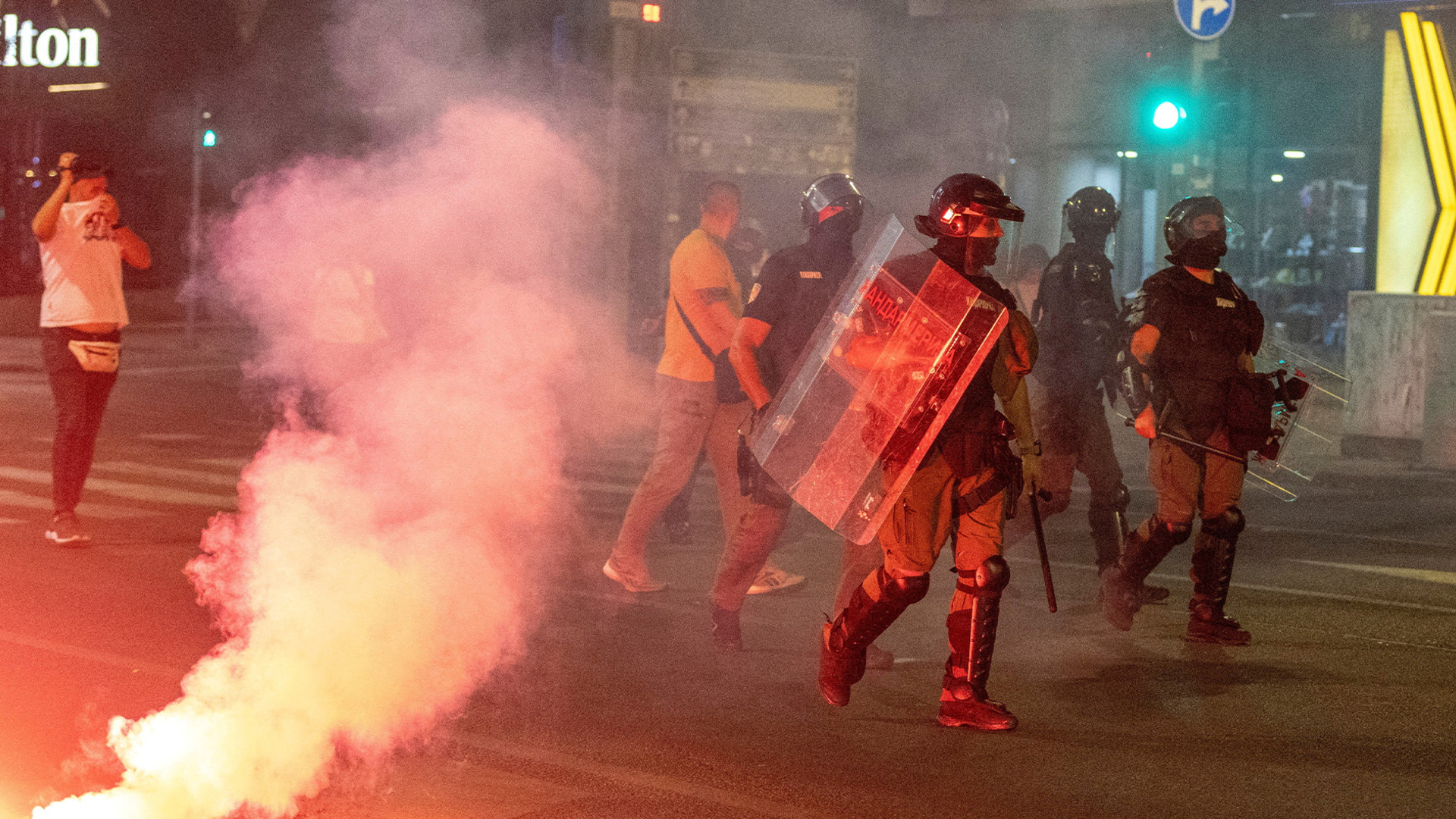European leaders will join Ukrainian President Volodymyr Zelenskyy during his visit to Washington, DC, seeking an end to the Russia-Ukraine war, after United States President Donald Trump dropped both his push for a ceasefire and the threat of punitive actions against Russia following his Alaska summit with Russian President Vladimir Putin.
Securing a ceasefire in Ukraine, more than three years after Russia’s invasion, had been one of Trump’s core demands before Friday’s Alaska summit, to which Ukraine and its European allies were not invited.
Special US envoy Steve Witkoff said on Sunday that Putin agreed at the summit with Trump to allow the US and European allies to offer Ukraine a security guarantee resembling NATO’s collective defence mandate as part of an eventual deal to end the 3 1/2-year war.
“We were able to win the following concession: That the United States could offer Article 5-like protection, which is one of the real reasons why Ukraine wants to be in NATO,” he said on the CNN news programme State of the Union. Witkoff said it was the first time he had heard Putin agree to that.
Ukraine’s Zelenskyy, speaking in Brussels on Sunday after meeting European Commission President Ursula von der Leyen, said the current front lines of the war should be the basis for peace talks.
“We need real negotiations, which means we can start where the front line is now,” Zelenskyy said, adding that European leaders support this and reiterating his long-held position that it was necessary to establish a ceasefire in order to then negotiate a final deal.
But after the summit on Friday with Putin yielded no clear breakthrough, Trump ruled out an immediate ceasefire – a move that aligns with Putin, who has long argued for negotiations on a final peace deal.
According to a New York Times report, after his meeting with Putin, the US president also told European leaders that he had offered to support a plan to end the war that involved Ukraine giving up parts of its territory to Russia.
Ukraine and its European allies have criticised Putin’s stance as a way to buy time and press Russia’s battlefield advances, and they have expressed unease over Trump’s land swap proposal from the outset.
In an effort to try show a firm, united front to the US president in White House talks on Monday, German Chancellor Friedrich Merz, French President Emmanuel Macron, British Prime Minister Keir Starmer, NATO Secretary-General Mark Rutte, Finland’s President Alexander Stubb, Italian Prime Minister Giorgia Meloni and von der Leyen will accompany Zelenskyy to Washington, DC.
“The talks will address, among other things, security guarantees, territorial issues, and continued support for Ukraine in its defence against Russian aggression,” the German government said in a statement about the trip to the US capital. “This includes maintaining pressure on sanctions.”
Ahead of the visit, von der Leyen said on X that she would welcome Zelenskyy for a meeting in Brussels on Sunday, which other European leaders would join by video, before accompanying the Ukrainian leader on his US trip at his “request” and with “other European leaders”.
Strength and safety in numbers appear to be factors in the group visit, with memories still fresh about the hostile reception Zelenskyy received in February from Trump and US Vice-President JD Vance in a public White House dressing-down, castigating the Ukrainian leader as being ungrateful and “disrespectful”.
No land swaps
While Zelenskyy has welcomed Trump’s efforts to end the war, in a post on social media on Saturday, he warned that “it may take a lot of effort to get Russia to have the will to implement far greater – peaceful coexistence with its neighbors for decades”.
The Ukrainian president has also repeatedly reiterated that Kyiv will not swap any of its land to attain a ceasefire. Ukraine’s constitution forbids the ceding of territory.
According to Zelenskyy, Putin has asked that Russia be handed over all of Ukraine’s eastern Donetsk region, a third of which Kyiv still holds.
In exchange, Russian forces would halt their offensive in the Black Sea port region of Kherson and Zaporizhia in southern Ukraine, where the main cities are still under Ukrainian control.
Earlier this month, the Ukrainian president said that “Ukrainians will not give their land to the occupier” and pointed out that he doesn’t have the authority to sign off on land swaps. He said that changing Ukraine’s 1991 borders runs counter to the country’s constitution.
Russia launched a full-scale invasion of Ukraine in February 2022 and has been gradually advancing for months.
In his statement after the Alaska summit, Putin signalled no movement in Russia’s long-held demands, which also include a veto on Kyiv’s desired membership in the NATO alliance.
He also warned Ukraine and its European allies not to “create any obstacles” and “that they will not attempt to disrupt the emerging progress through provocation or behind-the-scenes intrigue”.
Trilateral summit in the works?
The diplomatic focus now switches to Zelenskyy’s talks at the White House on Monday with the European leaders in tow.
In an interview with broadcaster Fox News after his sit-down with Putin, Trump had suggested that the onus was now on Zelenskyy to secure a peace deal as they work towards an eventual trilateral summit with Putin.
“It’s really up to President Zelenskyy to get it done,” Trump said.
European powers, however, want to help set up a trilateral meeting between Trump, Putin and Zelenskyy to make sure Ukraine has a seat at the table to shape its future.
They also want security guarantees for Ukraine with US involvement, and the ability to crank up pressure on Moscow if needed.
“They will spell out what they consider essential in terms of security guarantees: what they can do themselves, what falls to the coalition of volunteers, and also what they expect from the United States,” a European government official told the Reuters news agency.
“Indeed, they expect a very robust commitment.”

